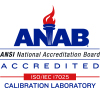 Posted on
Posted on 
Biobanking plays an indispensable role in advancing medical research, providing invaluable biological resources for studying a wide range of diseases. However, maintaining the integrity of these biological samples presents several significant challenges.
Temperature Sensitivity: Biological samples such as blood, tissues, and DNA are extremely sensitive to temperature fluctuations. Deviations from required storage conditions can compromise sample quality and, ultimately, the reliability of research outcomes. It is crucial for biobanks to maintain precise temperature control to ensure the long-term viability of samples.
Regulatory Compliance: Biobanks must adhere to rigorous standards and regulations to ensure sample quality. This includes detailed tracking and documentation of storage conditions over the sample’s lifecycle. Compliance with these regulations not only supports scientific validity but also ensures ethical stewardship of donated samples.
Monitoring and Documentation: Continuous monitoring and accurate documentation are key to addressing the challenges of temperature sensitivity and regulatory compliance. This is where MadgeTech’s data loggers come into play. Equipped with advanced sensors and reliable data recording capabilities, these devices ensure that biobanks can maintain and verify the optimal conditions required for their samples, thereby safeguarding their integrity and usability in research.
By addressing these challenges with precise monitoring technology, biobanks can enhance the quality of their preservation practices, contributing significantly to the progress of medical research.
To learn how MadgeTech can address these challenges, please contact us at [email protected].






